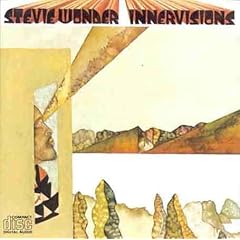
So Michael Dorf, founder of the is-it-closing-is-it-not-closing Knitting Factory, is launching a haute taute new venue in TriBeCa. Why their opening show is Joan Osborne is beyond me, but in all honesty the place seems promising. But for my money, the Knit is still the best place in the city to see a show. After seeing Tonic, Sin-E, The Contintental and CBGB all close within two years of each other, the closure of the Knitting Factory would be a heartbreak beyond reproach for creative music in this city. Three spots in one, The Main Space, Tap Bar and Old Office, we will be losing the home to some of the best shows I have personally ever seen since taking in my first gig there in 1998 (the name of which completely escapes me at the present moment). The Melvins. Mike Patton and the X-Ecutioners. At the Drive-In. Sixteen Horsepower. Marc Ribot. Skull Snaps. Slick Rick. The late, great ODB. Mixmaster Mike. The list goes on and on, literally.
Though City Winery looks promising in theory, with shows ranging from Boz Scaggs to Phillip Glass and winemaking downstairs in the basement, it doesn't seem to be catering to those of us who were in the price range of shows at the Knit or any of the other non-profit places Dorf has opened throughout the country. But you can be damn sure I'll be there so see my Facebook pal Mike Doughty in January.
Fore more about the opening of City Winery, scroll down for today's news off the Billboard.com wire. -Ed.
November 20, 2008 , 2:00 PM ET
Michael D. Ayers, N.Y.
City Winery, a new New York venue being launched by Knitting Factory founder Michael Dorf, will open on New Year's Eve with a concert by Joan Osborne.
Located in the Tribeca section of Manhattan, City Winery is a 21,000-square foot venue that, as its name implies, also serves as a winery where patrons can enjoy private tastings and take wine-making classes.
Amid in influx of new venues in Manhattan and Brooklyn, Dorf tells Billboard he's hoping to tap into a higher-end clientele that prefers seated shows over general admission. The extensive wine list should help too.
"There's an audience that is missing the Bottom Line in Manhattan," he says. "I think there are people that want to sit. The overlap between wine and that singer/songwriter style of music became very evident to me."
City Winery will operate under a somewhat exclusive format. Show tickets are only available to members of the VinoFile program, which costs $50 annually. Customers will get a $15 credit for their first bar tab, plus $35 off tastings or classes.
Following that, for every $100 spent at the venue, a $10 credit is awarded. And for every show, members have the ability to select specific seats in the venue.
City Winery will cap at 300 for seated shows. "It's intimate, but you can achieve some scale. At $50 or $100 ticket, you can gross some money that can allow for a bigger-name artist to consider doing the gig," Dorf says. Prices vary as to whether a customer chooses to sit at two different levels of reserved tables, a bar stool or in a VIP tasting section.
Dorf has booked unique artist pairings in the weeks to come, including Lenny Kaye with Suzanne Vega, Calexico with Keren Ann and Jesse Malin with Rachael Yamagata.
In related news, Dorf has announced that R.E.M. will be honored in what has become an annual tribute to influential songwriters that he organizes. The Swell Season/Frames' Glen Hansard, Guster and Patti Smith will perform, with Calexico serving as the house band for the March 11 show at Carnegie Hall.
Here is the initial lineup for City Winery:
Dec. 31: Joan Osborne
Jan. 8: Steve Earle & Allison Moorer
Jan. 9: Raul Midon & Sonya Kitchell
Jan. 11: Boz Scaggs
Jan. 15: Suzanne Vega & Lenny Kaye
Jan. 22: Mike Doughty & Tony Scherr Trio
Jan. 29: Jill Sobule & Julia Sweeney
March 4: Rufus Wainwright
March 10: Calexico & Keren Ann
March 15: Philip Glass
March 22. Philip Glass
March 29: Philip Glass
April 5: Philip Glass
April 9: Jesse Malin & Rachael Yamagata
Mike Patton Live at the Knitting Factory: New Years Eve, 2004:







